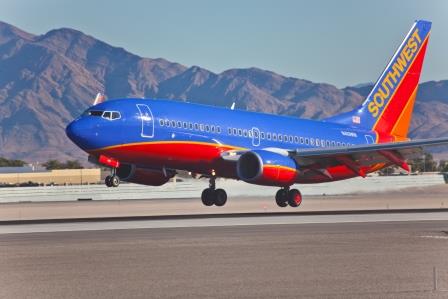Unless you’ve been living under a rock for the last month, you’ve no doubt heard of Southwest Airlines difficulties with holiday travel. Passengers found themselves stuck in places they didn’t intend to stay while their luggage found separate places to hang out for the holidays. The airline, whose stock symbol is LUV, wasn’t feeling a lot of love from their customers.
Or, as we soon learned, from their employees.
What happened? Well, it seems the airline was using technology that hadn’t kept up with the rest of the industry. That’s right, Southwest Airlines, the airline that upset the industry had fallen behind.
This isn’t just my opinion. The Southwest Airlines Pilots Association (SWAPA) wrote an extremely blunt letter to Southwest’s executives citing systemic issues, and very clearly identifying the problem as a lack of leadership.
Full disclosure: I’ve never been a big Southwest fan. Because the government had contracts with them I was sometimes forced to join the lines. Years ago a passenger had to get in line early at the ticket counter to get tickets early enough to get in another line to avoid the dreaded middle seat. Their system has significantly improved since then, but it still feels like I’m waiting to get on the bus. And in spite of all the hype, they are not always the cheapest flight. That said, I have always been impressed with their success in upending the industry. I have often wondered how a service that seemed, to me anyway, so inconvenient could become so successful?
The answer to that can be credited to the founder, Herb Kelleher who believed taking care of the employees was the path to success. Happy employees would result in happy customers, which would increase business and result in happy shareholders. It seemed he was correct.
But the culture at Southwest has changed. In the past, employees had considerable authority to deal with problems at the lowest level. People loved working for the airline. The letter from SWAPA indicates that has changed. Problem solving and decision making has moved away from the front line and emphasis shifted to taking care of shareholders. Unfortunately, it doesn’t work in reverse. Happy shareholders do not cause happy customers or happy employees. Southwest’s earlier policies that allowed employees to make decisions on the spot demonstrated trust in and appreciation for their employee’s abilities.
As early as 2014 the airline experienced several serious, but smaller problems. But, as the emphasis moved from employees to shareholders, these warning signs were ignored.
This week I received an email from Southwest with the standard corporate speak about how they are sorry and that they will spend a large sum of money to upgrade their IT systems. That’s probably a good idea, but what really caught my eye is that they are hiring a consulting firm to help them improve. That always seems to be the answer, but I wonder if their employees don’t already know how to fix the problems. The executives might want to re-read SWAPA’s letter.
Therein lies the lesson for leaders at all levels. A company, whatever its mission, will be most successful when the employees believe the company values their contribution. When they turned away from that culture, the result was disastrous, but not unpredictable.
Your team members are the root of your success as a leader and you have a choice. Treat them as an expense and ignore their value and maybe get along for a while; or treat them as a valuable part of the company, utilize their expertise and experience, make sure they have the necessary training, show them that you genuinely appreciate their efforts and contributions, and they will make the team, and you successful.
For more on the SWAPA letter go to https://www.thestreet.com/travel/southwest-airlines-has-a-problem-bigger-than-its-technology.
